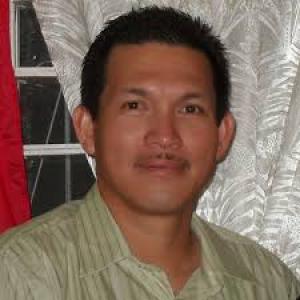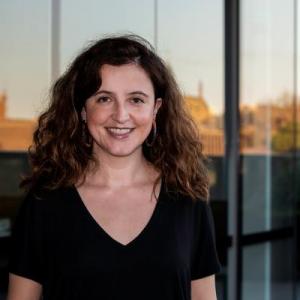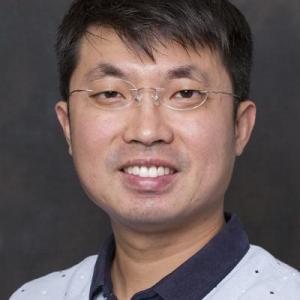Short description:
I am a trained clinical social worker. Was a public officer, employed with the Ministry of Human Development for 15 years working mostly with children in conflict with the law focusing on community rehabilitation initiatives. Worked for Pathlight International, a faith based organization, providing educational opportunities for children in rural communities. Currently I am a full-time lecturer at the University of Belize (UB) with the Faculty of Social Science and specifically with the Social Work Department. This August 2019 marks the commencement of 9 years with UB.
Short description:
I currently work in the sector of training and education where I develop and manage projects with Belgian public actors (Ministry of Foreign Affairs, development cooperation agency) that aim at developing the skills of foreign civil servants and sharing best practices.
My competences include the identification and implementation with third countries' training institutes in the field of public administration.
I also developed strong knowledge in the field of Civilian Crisis Management from the European Union's missions and experts' training perspective.
Along my work experience I have strong interest and certain experience in the field of migration and asylum in which I specialised through studies and that I further developed by working in an NGO for underage migrants in France.
Short description:
Deputy professor in Political Science at Linköping University, Sweden & Senior researcher at the Swedish Institute for European Policy Studies (SIEPS). Author of "Improving the Sustainable Development Goals. Strategies and the Governance Challenge" (Routledge 2019). Interested in the design and implementation of the SDGs, including the role of the European Union and International Organizations in the implementation. The SDGs are a case of global governance as well as national governance. My interest is primarily on goals 16 (the importance of good governance) and no 17 (investments, technology transfer etc.).
Short description:
Patrick Saez is a senior policy fellow on loan from the UK’s Department for International Development where he serves as a Senior Humanitarian Adviser. His research focuses on the international response to humanitarian crises and reform of the international humanitarian system.
Over the past decade he has advised the UK Government on a range of humanitarian policy issues, including protection of civilians and forced displacement, leadership in the humanitarian system, cash transfers in crises, and risk-based financing as well as DFID’s engagement with key UN, Red Cross, and other non-governmental humanitarian organisations. He co-authored the UK’s Strategy on the Protection of Civilians in Armed Conflict and authored the latest UK Humanitarian Reform Policy. He was DFID’s lead adviser on the Syria crisis from the onset of the crisis to 2015 and was responsible for DFID’s £135m core humanitarian funding to the UN. Most recently he led DFID’s initial response to the crisis in Venezuela and its impact on neighbouring countries.
Saez previously worked with the International Committee of the Red Cross where he headed the development of ICRC’s policy on the protection of civilians and served as delegate, protection co-ordinator and head of office in Colombia, Kosovo and Indonesia. He had previously worked with humanitarian NGOs in the Balkans, Rwanda, and the Democratic Republic of Congo.
Short description:
Valentina received her Ph.D. in Social Policy from Columbia University in 2015 and then pursued a Postdoc at the Department of Economics at the University of Michigan. Her research interests are in health economics, human capital, and economic development. In particular, her work has concentrated on understanding different factors that contribute to the process of human capital formation and the transmission of poverty across generations, in both developed and developing countries. Her recent projects have focused on studying the long-term effects of social policies on educational and health outcomes and on how disadvantaged families' greater exposure to shocks (e.g., environmental, violence, economic fluctuations, etc.) translate into lower human capital outcomes for their children.
Short description:
James Wilsdon is Professor of Research Policy at the University of Sheffield and Director of the Research on Research Institute, a new global consortium of research funders working to advance transformative & translational ‘meta-research', to inform more open, diverse and strategic research systems. He is also vice-chair of the International Network for Government Science Advice (INGSA). An interdisciplinary social scientist, he works on the politics and governance of research, and the relationship between evidence and decision-making. Over his career, in addition to posts at the universities of Sheffield, Sussex and Lancaster, he has worked in think tanks and as director of science policy for the Royal Society, the UK’s national academy of science. His recent publications include The Biomedical Bubble (Nesta 2018) and The Metric Tide (HEFCE/Sage, 2015). He is a Fellow of the UK’s Academy of Social Sciences, serves on the editorial board of the open access journal Palgrave Communications, and is on twitter @jameswilsdon.
Short description:
I am currently a Lecturer with the Singapore University of Social Sciences teaching climate science and its impacts on society. I had graduated with my PhD from the Australian National University where I examined the institutional and societal factors behind individuals' environmental valuations. Prior to this, I had worked briefly as a Researcher at the Asia-Pacific Economic Cooperation (APEC) writing on international trade among APEC economies, and had previously been a Research Assistant examining European countries' external debt at the Lee Kuan Yew School of Public Policy (LKYSPP), National University of Singapore (NUS). Earlier, I had obtained my Master in Public Policy degree from the LKYSPP after a stint with the Energy Market Authority, Government of Singapore. My undergraduate degree is in Political Science where I graduated with First Class Honors from the NUS before I became a Teaching Assistant upon invitation.







